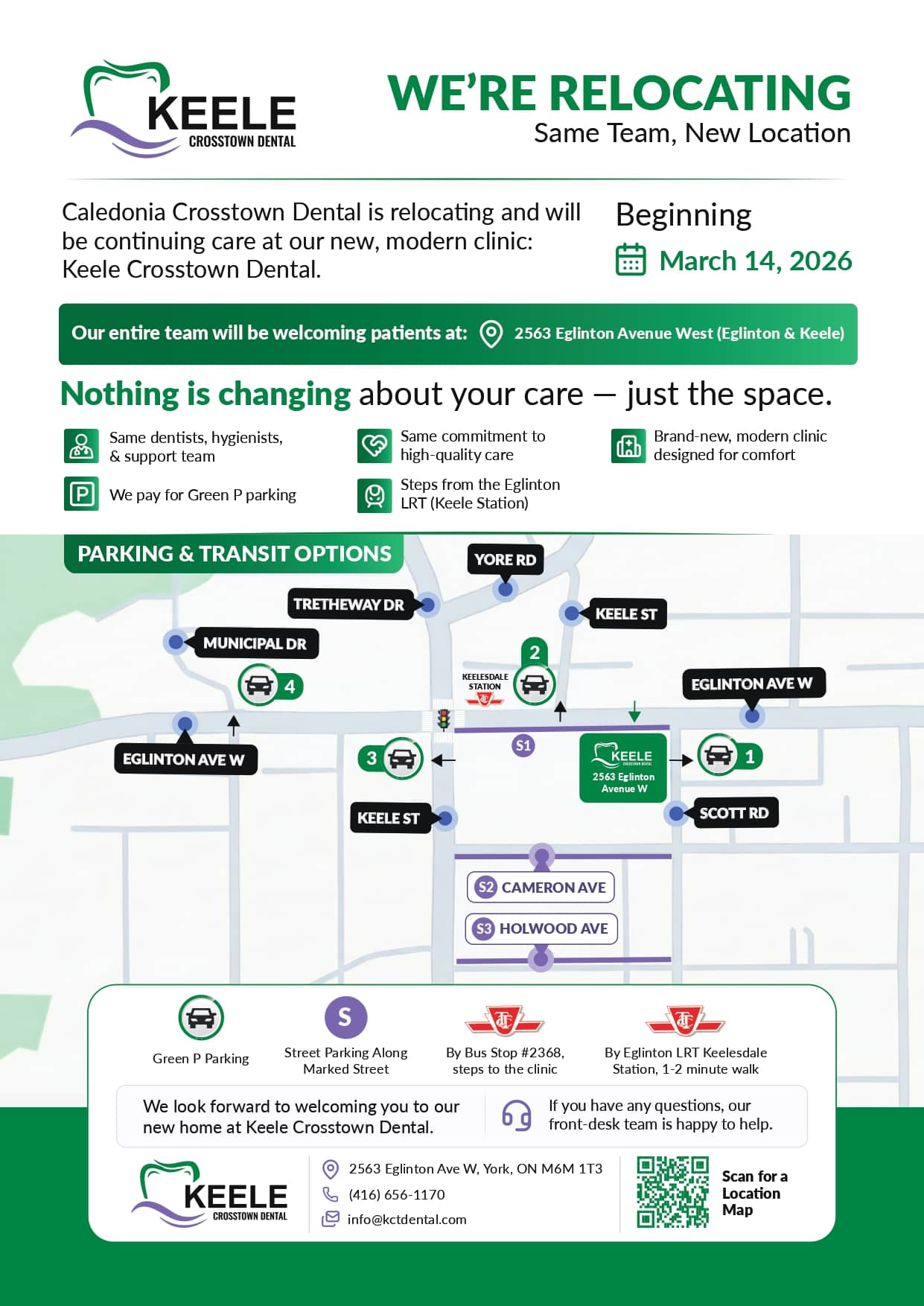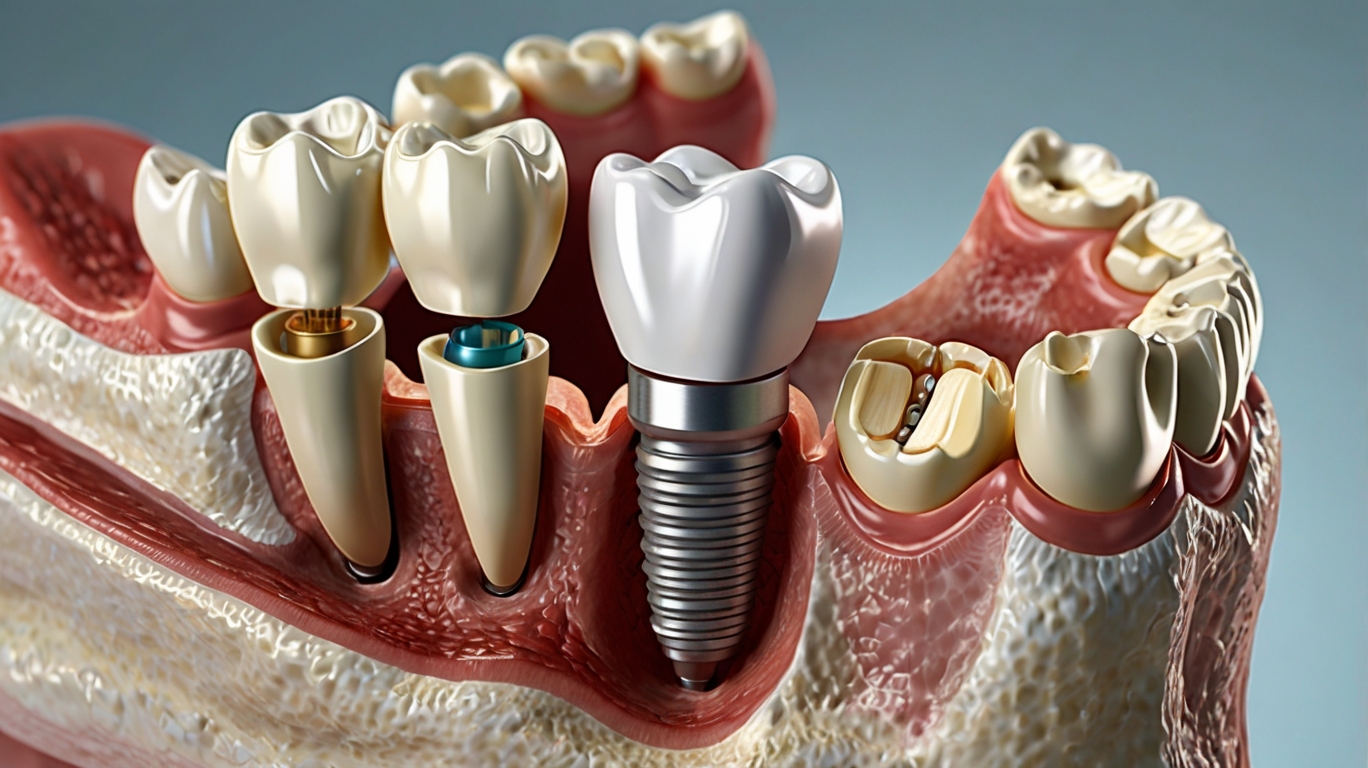Dental crowns repair broken teeth and enhance the functionality of the mouth, but with proper care, they can be made to endure. Choosing the appropriate foods is one of the most essential things in keeping a crown intact. Some foods protect your crown, but others might dislodge or damage it. Knowing what to consume and avoid helps ensure the durability of your restoration.
How Dental Crowns Influence Eating Trends
After getting a crown, your mouth may feel different while eating. Some foods can put extra pressure on the crowned tooth, leading to discomfort or potential damage. It’s best to start with soft foods and gradually reintroduce firmer textures.
Chewing habits also come into play. Applying pressure evenly using both sides of your mouth will help save your crown. Cutting food into little pieces rather than biting it down can also minimize stress on the restoration.
Best Foods to Eat with Dental Crowns
Selecting the correct foods will help maintain your crown in proper condition and avoid undue stress on your teeth. Nutritious soft foods facilitate easy chewing while maintaining overall oral health.
Best Foods to Eat with a Crown: Tips from a Dentist in York
If you are not sure what foods are most suitable for your dental health, asking a dentist in York for advice will help you with customized guidance. Making informed food choices is an easy way to prevent discomfort and keep your crown intact for years to come.
Soft and Gentle Foods
Soft foods are the best option soon after crowning. They cause the least amount of stress on the tooth and enable the crown to set correctly. Mashed potatoes, oatmeal, scrambled eggs, and steamed vegetables are ideal choices.
For individuals with dental crowns in York, it is essential to steer clear of hard or chewy foods, particularly during the initial healing process. Soft, well-cooked foods can help shield your crown while providing you with the nutrients you need. Smoothies and soups are also great options, but steer clear of very hot or cold temperatures that may lead to sensitivity.
Protein-Rich Options
Consume the proper proteins to keep your crown and natural teeth strong. Opting for soft protein sources such as cooked chicken, fish, eggs, and tofu can avoid putting too much pressure on your restoration.
Combining these proteins with soft vegetables or whole grains makes for a healthy meal that promotes both dental and general health.
Dairy Products for Strength
Milk, cheese, and yogurt have calcium and phosphorus that contribute to strong teeth. The foods are soft and chewy and are perfect for individuals with crowns.
Opting for low-sugar products will prevent plaque formation around the crown and other teeth from getting decayed.
Foods to Avoid with Dental Crowns
While certain foods support your crown, others have the potential to raise the risk of damage. Knowing what not to eat can assist in extending the life of your restoration.
Hard and Crunchy Foods
Hard foods place too much pressure on the crown, which can lead to cracks or chips. Nuts, raw vegetables, hard candies, and popcorn should be avoided, particularly in the initial weeks after placement.
If you like crispy foods, you may want softer options like steamed vegetables or seedless fruit.
Sticky and Chewy Foods
Foods that stick, such as caramel, chewing gum, and taffy, can pull on the crown, potentially moving it loose after a while. Sticky foods stick to teeth also, making a plaque buildup risk greater.
If you have to indulge in sugary cravings, choosing naturally occurring sweet foods like soft fruits satisfies your craving while not putting unnecessary stress on dental work.
Extremely Hot or Cold Foods
Temperature foods and liquids can lead to discomfort, particularly if your crowned tooth is acclimatizing. Icy cold beverages, hot soup, and boiling coffee can create sensitivity.
Having cold drinks using a straw or eating hot food that has been cooled slightly before consumption helps reduce discomfort.
Safe Foods for Temporary Crowns
If you’ve had a temporary crown put on your tooth until you get your permanent one, you must be extra careful. Temporary crowns are not as durable and can be more easily damaged.
Foods for temporary crowns are soft foods such as pudding, pasta, yogurt, and scrambled eggs. Stay away from anything that’s too hard or sticky, as these will more easily dislodge the crown before you get your permanent restoration.
Long-Term Care for Dental Crowns
Taking care of a crown is more than just watching what you eat. Keeping your restoration in shape requires proper oral hygiene and a visit to the dentist on a regular basis.
- Brush and Floss Every Day: Brush the area around the crown using a soft-bristled toothbrush and fluoride toothpaste. Gently flossing can dislodge plaque.
- Avoid Using Teeth as Tools: Never open packages or bite hard objects using your teeth since this can result in unnecessary tension on the crown.
- Schedule Regular Dental Checkups: Your dentist can examine the status of your crown and correct any adjustments that are needed to ensure it stays in place.
Adjusting to Eating with a Crown
It may take some getting used to eating with a new crown, but in most cases, people adapt in a matter of weeks. Eating small bites, slowly chewing, and spreading pressure evenly will make the adjustment easier.
If you have ongoing pain while eating, it’s always best to see a dentist. The crown might need to be adjusted for a better fit.
When to See a Dentist About Your Crown
While dental crowns are made to last long, they nevertheless wear out due to time and use. Check for any of the following warning signs and then visit your dentist:
- Persistent or recurring pain or sensitivity
- Loose or moving crown
- Cracks and chips that show
- Chewing difficulty on crowned tooth
There is a big chance that getting it checked promptly will save it from further problems and keep you healthy.
Protect Your Crown for a Healthy Smile
Munching on the correct foods and proper oral care are important to ensure that your crown is in top shape. By refraining from eating hard, sticky, and extremely hot foods, you can avoid damaging it and get long-lasting results.
At Caledonia Crosstown Dental Centre, we offer skilled care to assist you in keeping your smile strong and healthy. If you require a new crown, an adjustment, or nutritional guidance, we are here to assist you. Book an appointment today to stay on top of your dental health!


